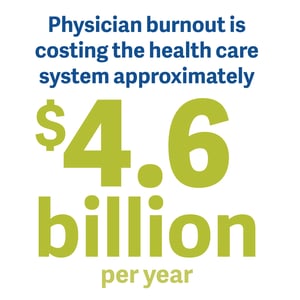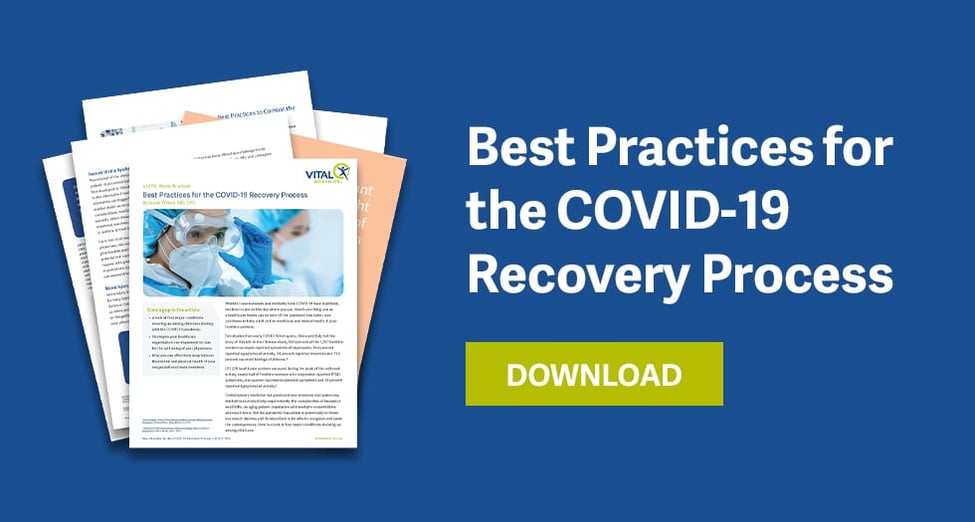With a second wave of the pandemic hitting healthcare organizations and their frontline clinicians, their mental and emotional health should be as much of a priority as protecting them from the virus itself.
 One of the most painful and debilitating conditions that can strike your healthcare workers is post-traumatic stress disorder (PTSD). Familiar in the context of military service, PTSD can haunt anyone who has been through life-threatening traumatic events—and caring for patients with COVID-19 is no exception.
One of the most painful and debilitating conditions that can strike your healthcare workers is post-traumatic stress disorder (PTSD). Familiar in the context of military service, PTSD can haunt anyone who has been through life-threatening traumatic events—and caring for patients with COVID-19 is no exception.
Psychologist Dr. Sarah Jones of the UK nonprofit Help for Heroes has worked with many British veterans recovering from active military duty. Her organization has now put together resources to help medical practitioners in the UK’s National Health Service.
“The parallels that we were recognizing from our experience of having supported veterans with their mental health for many years,” she says, “are the exposure to trauma and to difficult circumstances, particularly repeated exposure.”
“During this pandemic—with the level of exposure that our healthcare professionals [are] having to patients in distress, [given] the level of patients who are critically ill, and the number of people who are, sadly, dying as a result of this illness—we liken that to being…in combat, where there is a risk to life and a risk of permanent injury or impact as a result of trauma.”1
PTSD symptoms are grouped into 4 clusters, according to the Diagnostic and Statistical Manual of Mental Disorder, Fifth Edition (DSM-5):
- Re-experiencing (intrusive thoughts)
- Avoidance (not wanting to re-experience difficult emotions so avoiding situations associated with the pandemic—such as practicing medicine)
- Negative cognitions and mood (having trouble focusing or feeling sad)
- Arousal (increased agitation and irritability)
Physical symptoms of PTSD may include a rapid heart rate, rapid breathing, sleep disturbance, nausea and vomiting, headache, muscle tension and disturbance in eating. Maladaptive or ineffective coping may show up in substance abuse and quality of care metrics.2
To learn about how your organization can help prevent PTSD and other mental/emotional health conditions and help support your clinicians through the pandemic, read our article Best Practices for the COVID-19 Recovery Process.
Download our article, Best Practices for the COVID-19 Recovery Process, to learn more about the importance of caring for your clinicians' well being, knowledge on how to provide assistance in recovery and practical advice on how to navigate the complex needs of your organization throughout the COVID-19 pandemic.



